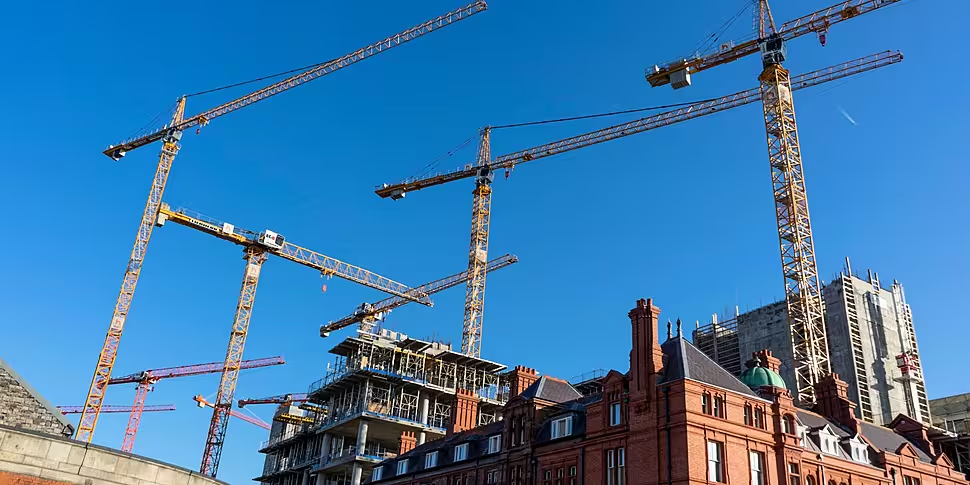Warnings of a looming recession are “not quite as alarming as some of the headlines are suggesting”, according to a leading economist.
A new ESRI report this morning warned that Ireland is facing a 'sharp' and 'widespread' fall in growth in the final months of this year due to rising prices and a fall in exports.
The institute is urging Government not to cut taxes on Budget Day beyond what is absolutely necessary to keep wages in line with inflation.
The Quarterly Bulletin essentially predicts growth in the domestic sector while the multinational sector falters – with national GDP to fall by 1.6%.
It comes a day after Exchequer returns showed a dip in corporation tax receipts with this year’s budget surplus potentially falling from €10bn to €8bn.
On Newstalk Breakfast this morning economist Austin Hughes said the report is not a stark as commentators have suggested.
“If you look at the details of the ESRI report, it's not quite as alarming as some of the headlines are suggesting,” he said.
“We do have a quite a significant slowdown this year in its forecast, but you know, it's largely due to the multinational sector and to a lesser extent … the impact of inflation.
“But in terms of the outlook for next year, the forecasts haven't been changed. GDP is still forecast at 3.5% for next year, so very strong growth indeed.”
He noted that the ESRI has also reduced its inflation forecast – meaning the risk of fanning the flames of inflation by investing in the economy has eased.
Budget 2024
He said it is essential the Government invests in infrastructure, housing, climate change and attempts to ease the cost-of-living crisis.
“We still have significant funds,” he said. “There is still a significant surplus and that's still in the ESRI report.
“I think, you know, the real question is, how we value progress in areas like infrastructure and housing versus the old-fashioned view of prudence.
“Certainly, the Government can hold back an awful lot of money, but we will have greater economic problems in terms of infrastructure, climate change and housing in the next couple of years.
“We need to spend on these things and unfortunately, we also need to spend on a cost of living crisis that is affecting consumer spending.”
Economic crash
He rejected claims the Government ‘giveaway budget’ plans are reminiscent of Irish economic policy before the crash.
“I don't think [the situation is] anything like the noughties,” he said.
“I know economists differ around this and my views may not be shared by all but I think that the sense of expectation around the economy is very different.
“In the noughties, it was the ATM, it was everyone, kind of, needs to buy three or four apartments or whatever.
“Now it's a case of, people needing help with the cost-of-living crisis in many instances.”
Cost-of-living
He also rejected claims the narrative around cost-of-living crisis is overblown.
“We have to make sure to avoid economic and social fracture that people don't feel left behind by these reports of a boom,” he said.
“There is a need to spend more on infrastructure, there is a need to spend more on housing and we also have to address a significant cost-of-living crisis.”
You can listen back here:









